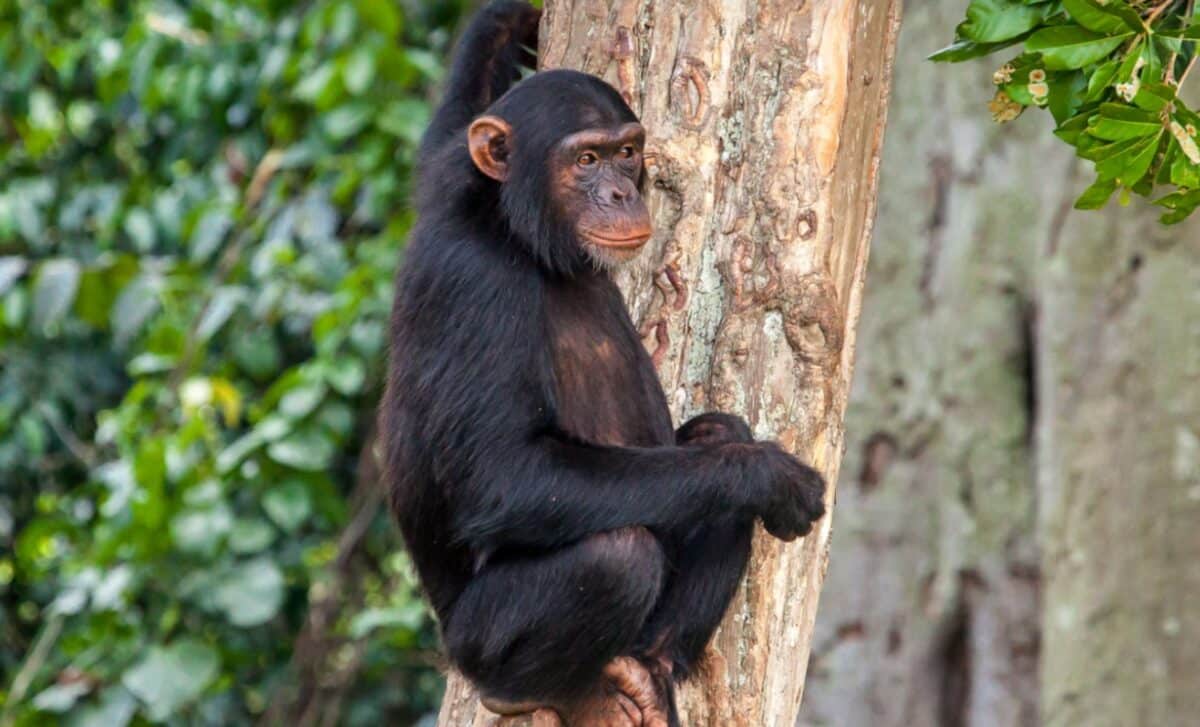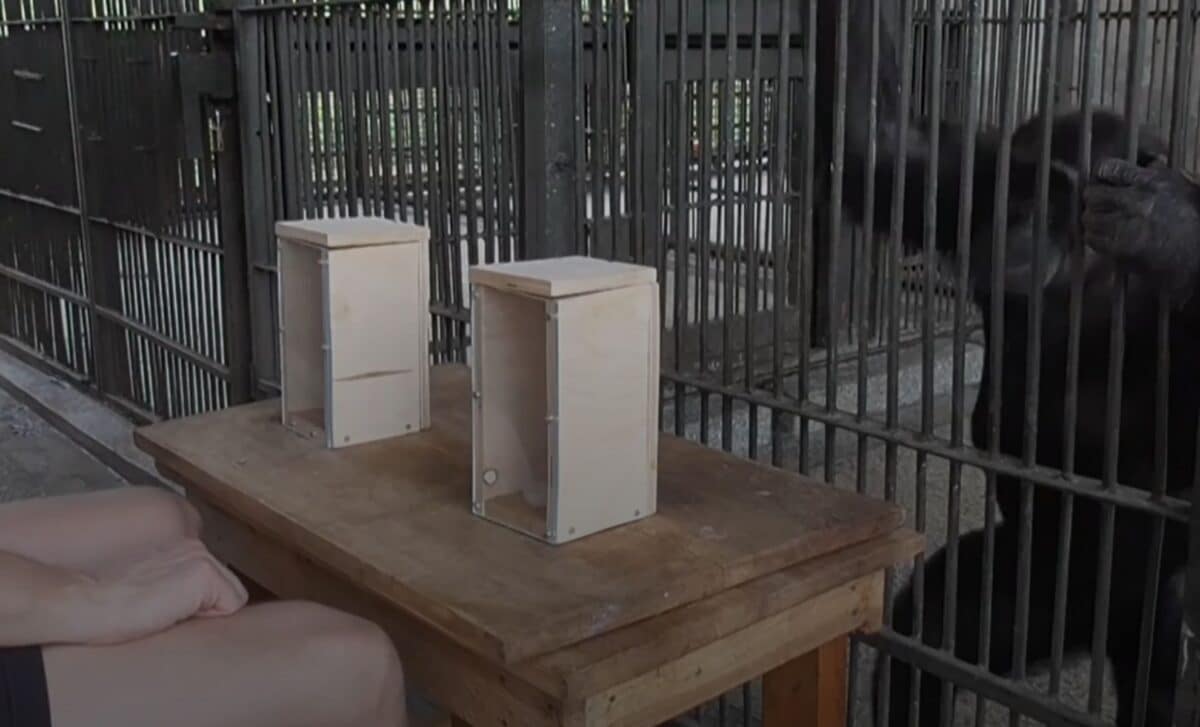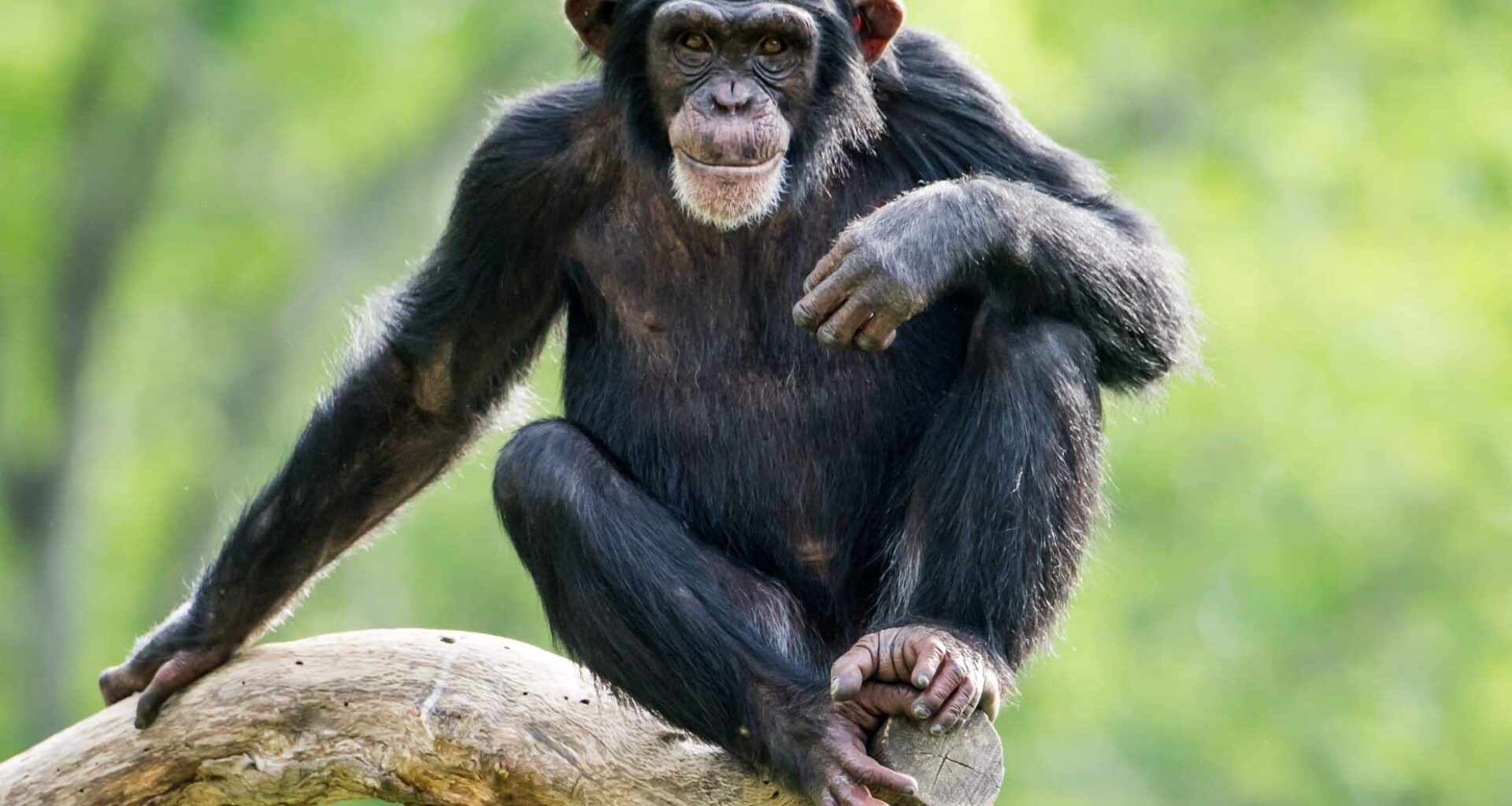Research led by Jan Engelmann at the University of California, Berkeley, explored chimpanzees’ ability to assess and revise their beliefs based on new evidence. The study, conducted at the Ngamba Island Chimpanzee Sanctuary in Uganda, involved a series of experiments where chimpanzees were presented with conflicting clues about the location of food hidden in boxes.
The results show that the apes can evaluate the strength of different pieces of evidence, change their minds when stronger clues appear, and make decisions that align with rational thinking processes once thought to be exclusive to humans.
Testing Rationality in Chimpanzees
In the experiment, chimpanzees were shown two boxes, one with strong evidence (a clear view of food through a glass panel) and another with weaker evidence (the sound of food rattling inside the box). The apes were given the opportunity to choose which box contained the food, and after receiving a second clue, they could either stick with their original choice or switch to the other box.

The results were striking: the chimps only changed their decision if the second piece of evidence was stronger than the first. This demonstrated that they were actively weighing the quality of the evidence, a decision-making process that mirrors human reasoning.
How Chimps Rank Information
What sets this research apart is the chimps’ ability to assess different types of evidence. In one condition, the chimps were shown faint traces of food behind one box while the other box produced a loud rattle when shaken. The chimps preferred the rattle, showing that they ranked the sound as more reliable than the faint visual cue.

In a separate test, when presented with conflicting evidence (a faint visual hint versus a strong rattle), the apes switched their choices based on which evidence appeared more trustworthy. This ability to prioritize the most reliable information is a key element of rational decision-making.
A Key Metacognitive Skill
Perhaps the most intriguing finding is that the chimpanzees revised their beliefs when new, stronger evidence emerged. In one experiment, the apes initially chose a box with a clear view of food but later switched their choice when they heard additional evidence, such as a second piece of food dropping into the other box.
This ability to revise their beliefs and change course based on new information is an example of metacognition, thinking about one’s thinking, which is a hallmark of advanced cognitive function. These results suggest that chimpanzees, like humans, can reflect on their knowledge and adjust their decisions accordingly.
Implications for Animal Cognition
The study offers compelling evidence that chimpanzees engage in rational thinking processes that were once considered uniquely human. While the chimps’ reasoning may not be as complex as human thought, the study’s findings significantly narrow the gap between human and animal cognition.
The ability to weigh evidence, revise beliefs, and make decisions based on the strength of available information suggests that chimpanzees, and possibly other primates, possess a form of intelligence that is more sophisticated than previously thought. This research opens new doors for studying animal cognition and could help us better understand the evolutionary roots of rational thinking.

